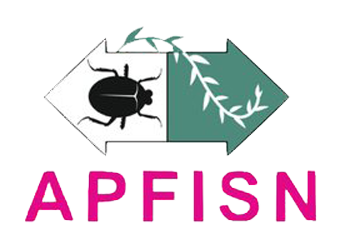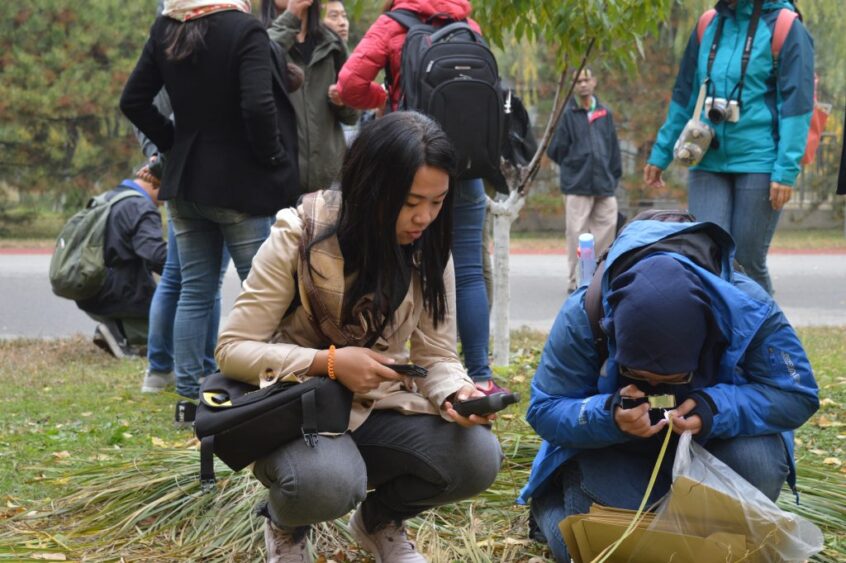It was a privilege to be part of this programme and I was so delighted to learn a lot from this research group. Through this training workshop, the participants were given the opportunity to learn the principles of forest pathology such as an overview of basic plant pathology, principles of disease management and control, disease survey and sampling methods, recognition of signs and symptoms caused by fungal pathogen as well as exposure to insect-vectored diseases.
Our five-day training workshop was not only limited to lecture sessions, but we were able to experience and get our hands dirty on site! We spent a day in the field (Olympic Forest Park) collecting samples and brought the specimens back to the Plant Pathology Lab, Linye Building at the Beijing Forestry University. We were also able to learn the proper laboratory techniques and practices.
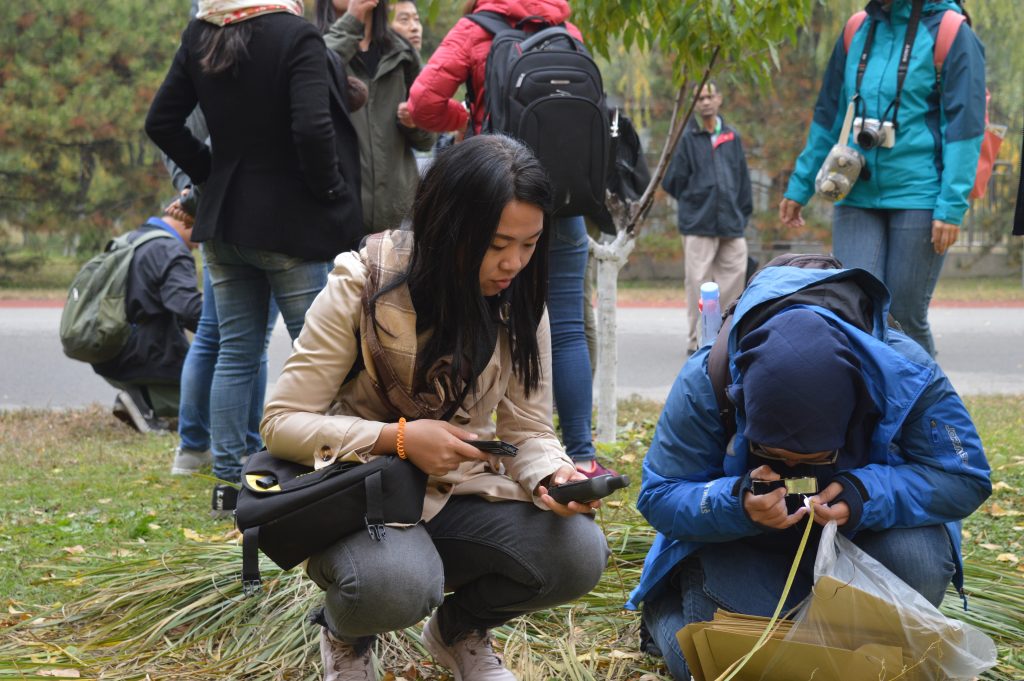
In the field taking GPS location of a sample.
I am still in the learning process to understand diseases, and it is important for me to master the overall classification of the fungi and the related details. Besides, I really need to build my knowledge of forest pathology. So, through this workshop, my wish was granted where I was able to learn these skills properly in identifying diseases based on signs and symptoms, causal agents, and best management practices for disease control. As a forester with 3 years of experience, I still consider myself as a newbie in this pathology field. I am slowly able to strengthen my critical thinking skills in using logic and reasoning to identify the strengths and weaknesses of alternative solutions, conclusions or approaches to problems. With the small group sessions and guidance from experienced speakers, I was able to learn basic knowledge of laboratory management and dealing with lab work such as processing samples and to do isolations and make cultures.
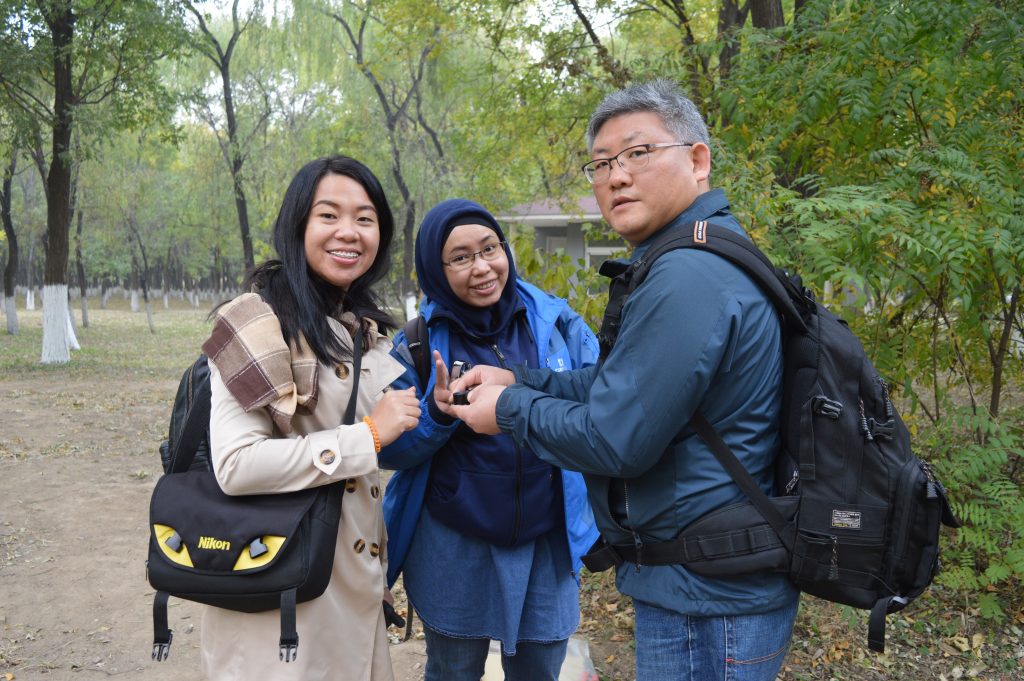
Cooperative collecting is always fun!
After my return to my institution, I should be able to plan, conduct & coordinate scientific research to study the health of forest environments, including disease control methods and also forest insects. Besides, I wish to develop research findings and transfer information for use by the public and private sectors concerned with forest health. Thus, with the basic knowledge that I learned throughout the workshop, I will be able to respond to requests for assistance from local foresters, industrial and private forest landowners.
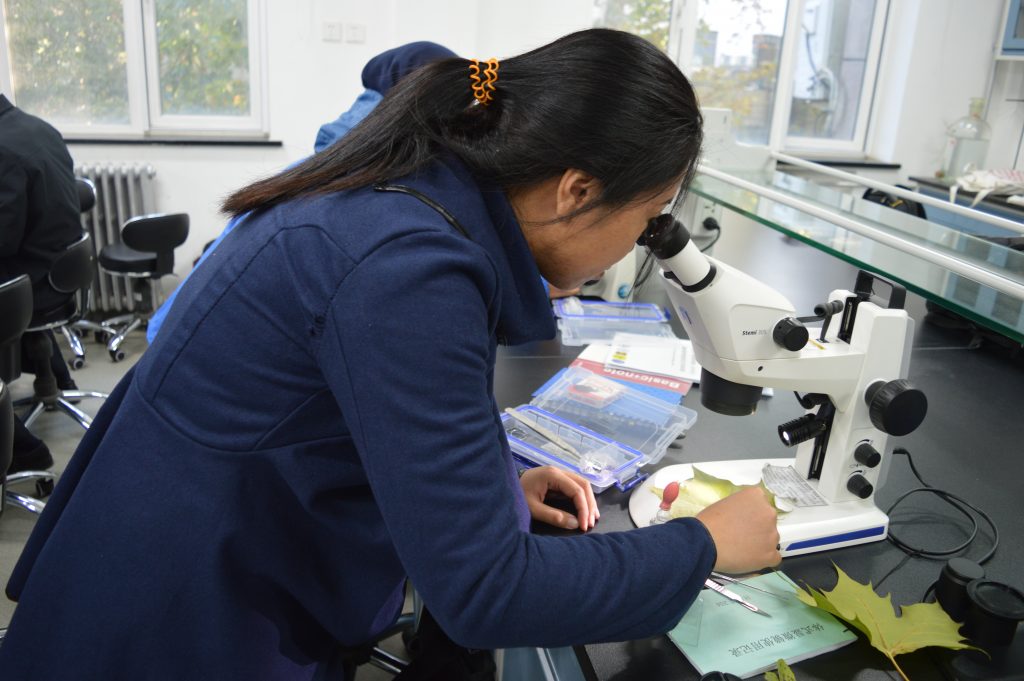
In the lab: what is that pathogen?
Once again, my sincere gratitude to the organizers, hosts, sponsors and supporting partners for making the APFISN training workshop happen! I can't thank you enough for all the speakers for sharing your experience and knowledge with us (Dr Lee Su See, Dr Bruce Moltzan, Dr Wang Yong Lin, Dr Simon Lawson, Dr Shiroma Sathyapala and Dr Gary Man and everyone involved that I might have forgotten to mention). To the other participants that already became part of my family and friends, thanks for the knowledge, friendship and laughter! I will definitely miss you guys!
Ms Viviannye Paul
Research Officer
Forest Research Centre (Pathology Section)
Sandakan, Sabah, Malaysia
